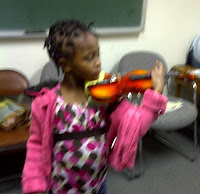Tunisian netizens are working around the clock to show the rest of the world the ongoing carnage in their country. What started as a protest against unemployment when a 26-year-old Tunisian man set himself on fire in Sidi Bouzid last month has ignited the country, sparking a wave of protests across it.
Despite the fact that protesters on the ground are facing a heavy-handed response from the authorities, and cyber-activists are facing the same dilemma, photographs, testimonies and videos showing the daily mayhem are appearing online.
Today's news says that at least 20 people have been killed in both the city of Tala, 200km southwest of the capital Tunis, and in the Kasserine region - and the Twitterosphere is on fire.
Earlier today, I got the following appeal on the mico-blogging site.
@ @ please tell to the world that kasserine is dying!
A quick search of the #sidibouzid hashtag weaved a story of horror - and an out pour of solidarity from decent citizens from around the world.
Tunisia-based SBZ_news tweets:
According to a source inside Talah, the police prevent the evacuation of injured citizens #SidiBouzid
and asks:
الى سيادة المفتي: شنوّا حكم قتل طفل-13 ربيعا- برصاصة في الرأس على يد الشرطة؟
To the Mufti (top religious judge), what is the ruling on policemen who kill a child - aged 13 - with a direct shot in the head?
He also links to a video, uploaded on Facebook, which shows how the police have used live ammunition against protesters:
Bullets, used by the Tunisian police in Kassrin
Nawaat too posts a video on YouTube showing how police have been engaging with the protesters using live ammunition:
Dead Tunisian boy in Tala. Image from Nawaat
On Twitter, Nawaat drives home the indiscriminate killings on the streets by showing us the image of a dead boy, on the streets of Tala:
Dead boy in the streets of Tunisia. (thala) 09.01.10
And even the dead don't seem to be immune. Nawaat adds:
اخبار مؤكدة 100% عن اطلاق رصاص حي على موكب جنازة لاربعة شهداء سقطوا البارحة في تالة و تفرقت الجنازة تركت النعوش لوحدم في الشارع #sidibouzid
100% accurate news on the firing of live ammunition on the funeral procession of four martyrs killed in Tala last night. The funeral procession was dispersed and the coffins were left abandoned on the street
fra-ise adds:
On Tunisian TV citizens and journalists express anger for the loss of doc and buildings. In only life is cheap. /@
But for Tunisian Youssef 3al-7it, hope is on the horizon:
ما عادش تقولوا تونس تحتضر راهو موش إحتضار أما صرخة آلام ولادة الرجال
You can no longer say that Tunisia is dying. This is not how death looks like. It is the cry of pain of a mother who gives birth to men.
Tunisia's clashes against its own people have brought an out pour of reactions from people from around the world.
Reacting to today's events, Saudi Essam Al Zamil tweets:
الجزيرة: عشرون قتيلا اليوم في مظاهرات تونس (يبدو أن الحكومة التونسية الجبانة بدأت باستخدام القتل لارهاب الشعب)
According to Al Jazeera, 20 people killed in Tunisia's protests today. It seems that the cowardly Tunisian government has started to resort to murder in order to terrorise its people.
Dima Khatib continues:
النظام في تونس وقع أمس شهادة بداية النهاية لنفسه. دماء ضحايا القمع في القصرين وتالة فرضت نفسها على وسائل الإعلام. انتهى الصمت
The Tunisian regime yesterday signed the beginning of its end. The blood of the innocent victims of Kasserine and Tala have imposed themselves on mainstream media. The silence is over.
And she adds:
يبدو أن وسائل الإعلام العالمية لا تحلو لها الأخبار إلا عندما تأتي ملطخة بدماء الأبرياء. خرجت من صمتها حول انتفاضة تونس بالإجبار
It seems that the international media does not like news unless it comes splattered with the blood of innocents. It has now been forced to break its silence on the Tunisian uprising
From more videos from citizens in Tunisia on what is happening on the ground, tune into Nawaat's YouTube channel here or check out tunisians on vimeo here.
On Facebook, a page named Liberate Tunisia has been created, with regular updates of developments on the ground as well as images of the victims. Mr President, the Tunisian People are Setting Themselves on Fire is another group on Facebook, dedicated to documenting the struggle of Tunisian people.
















 This post also available in:
This post also available in:






